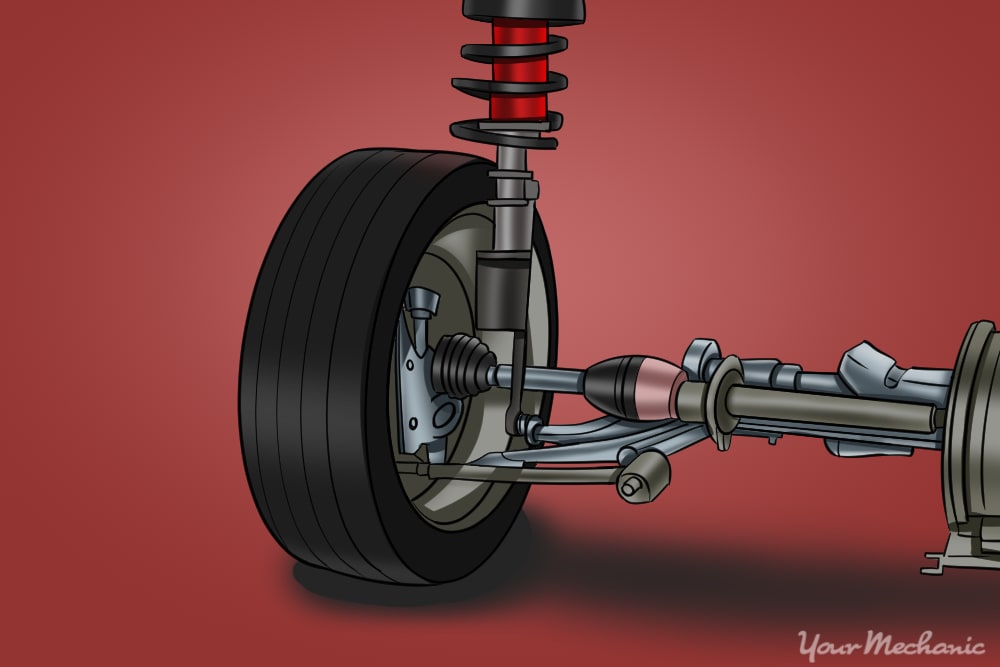

The car, truck or SUV you drive on a daily basis is comprised of multiple mechanical systems that must all work together seamlessly to function correctly. Arguably one of the most important systems is the suspension, which assists in the safe, efficient, and good handling of your vehicle. Depending on the type of vehicle you own, the mechanical suspension can be assisted with advanced computer systems that tune the suspension for optimal performance.
Nevertheless, while many automotive enthusiasts place an emphasis on installing power adders to increase their engine’s output, without improvements to the suspension system those performance enhancements will be money wasted. Beyond this fact, there are 5 reasons why a car’s handling is important.
Let’s take a look at why you should pay close attention to your suspension system and replace suspension and steering components as recommended by your vehicle’s manufacturer.
1. Sturdy Suspension Makes Driving Fun
Driving down the road in a stable and easy to handle vehicle is simply fun. Whether you own a performance sports car or an SUV, when the suspension on the vehicle is correctly adjusted, and parts are in good working order, your car will turn on a dime. However, over time and often due to hitting curbs or potholes, the vehicle suspension can fall out of alignment and decrease ride comfort. When this occurs, it can cause premature tire wear, cause the vehicle to pull to one side or the other, and might indicate a suspension component failure.
2. Improves Vehicle Safety
While a strong and sturdy suspension is great for driving excitement, it’s just as critical for vehicle safety. As we indicated above, your vehicle is made up of multiple independent systems including the powertrain (engine and transmission) and suspension systems (which includes the steering wheel and system). When the vehicle handling is strong and sturdy, the car is easy to navigate — especially during emergency driving situations. Having all components that impact the vehicle handling replaced before they wear out is critical for ride quality and vehicle safety.
3. Your Car will Drive Faster
Unless you drive every day on a drag strip, eventually you’ll need to turn. The vehicle’s suspension and handling characteristics are responsible for this action. When your suspension is adjusted correctly, and all moving parts are in good condition, the vehicle will steer easier, negotiate cornering speed easier, and simply drive faster down the road — but we don’t recommend driving faster than the posted speed limit.
4.Tires Last Longer
While excessive speed and aggressive driving can also lead to premature tire wear, in most cases, worn out suspension components are the leading source of excessive wear on tires. There are multiple suspension settings that impact tire wear including the camber, caster, and toe in and toe out. When the suspension is not adjusted correctly, tires will not sit flat on the ground. When this happens, excessive heat is built-up on areas that contact the ground more than others. To avoid this problem, make sure to have the vehicle suspension alignment checked at least once per year — or anytime you strike potholes or curbs.
5. It Saves you Money
While most of us assume replacing parts as recommended by the manufacturer leads to more money spent, in truth, it can save you a tremendous amount of money. Let’s say you’re driving down the street when a front strut breaks and causes the front hub and wheel to fall off the vehicle. This happens more often than you’d think. In most cases, when vehicle suspension components break, it will cause other suspension parts to break at the same time. This can lead to an accident if the vehicle is in motion.
Automobile handling is accomplished through the efficient operation of your vehicle’s suspension, tires, and steering components. If these parts are not replaced before they break, accidents can and often will occur. Regardless of what type of car, truck, or SUV you own, make sure to be proactive about replacing parts that assist in the safe operation of your handling system.



